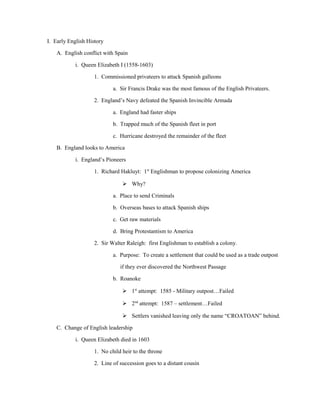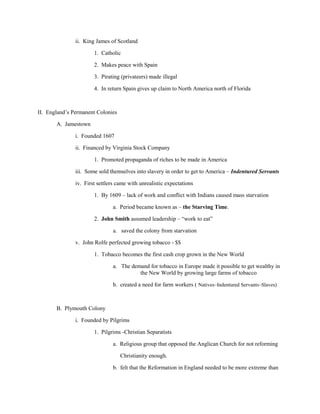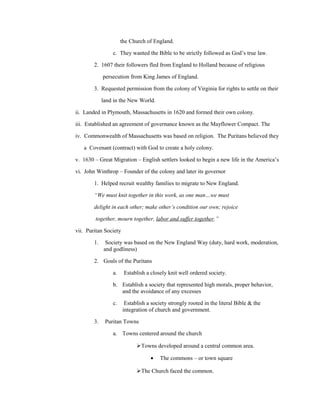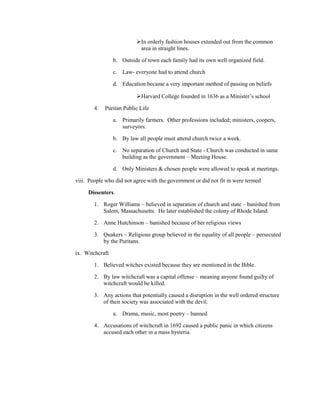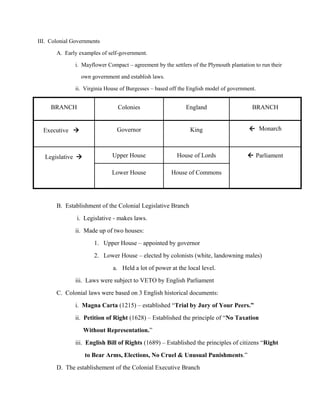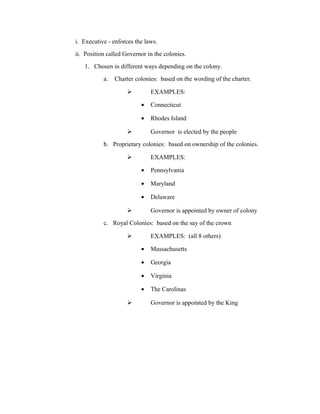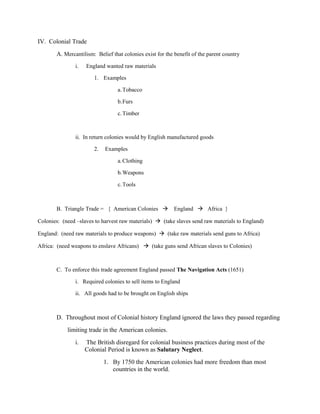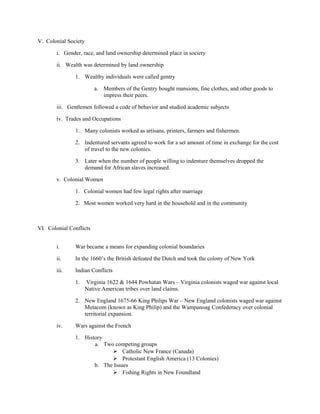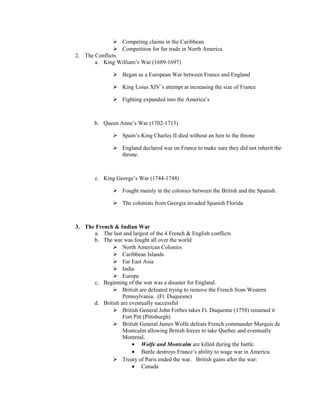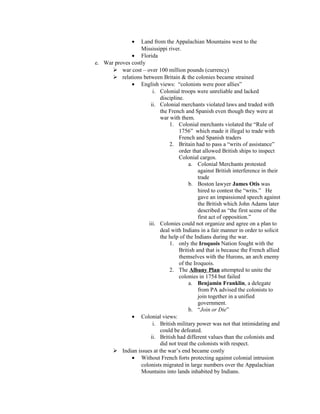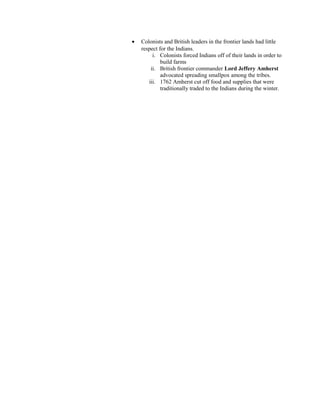The document provides a detailed overview of early English and American history from the 1500s to the 1700s. Some key points:
1) England established colonies in North America for economic and strategic reasons like obtaining raw materials and bases to attack Spanish ships. The first permanent English colonies were Jamestown in 1607 and Plymouth in 1620.
2) The colonies developed their own governments and societies but remained under control of the English crown. Tensions grew as the colonies sought more autonomy while England pursued a mercantilist economic policy.
3) Conflicts between the English and French colonies culminated in the French and Indian War, which Britain won in 1763. However, the war left Britain
